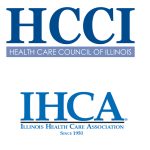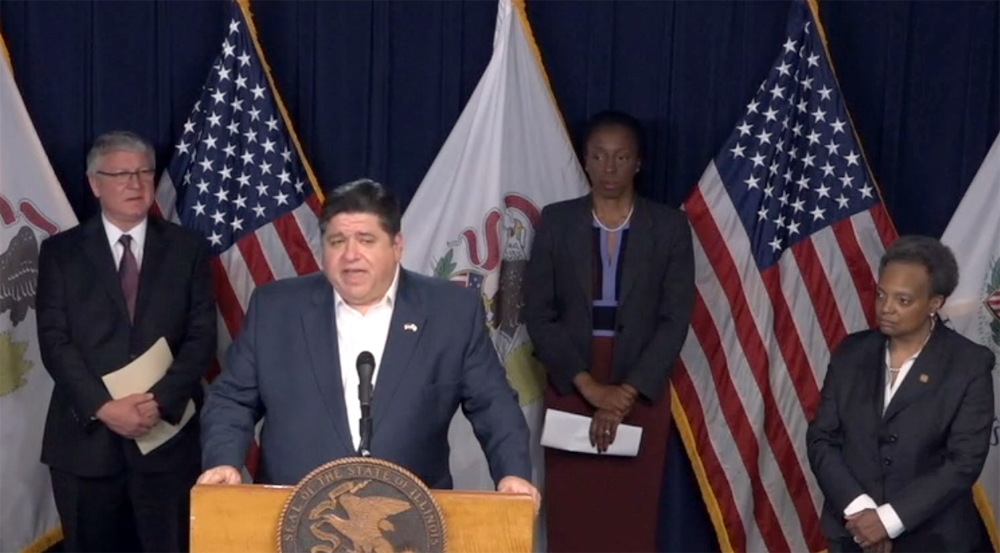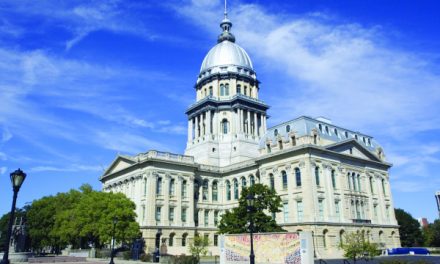
Illinois’ stay-at-home order extended through April

Illinoisans will be required to stay at home except for essential services at least through the end of April.
Gov. JB Pritzker announced the move Tuesday, a week before the original order was set to expire. He said the decision weighed heavily on him due to the impact on residents and businesses. But Pritzker said his main priority is keeping Illinoisans alive and medical experts have advised him the step is necessary to further mitigate the spread of the new coronavirus.
“If we can end these orders earlier, I’ll be the first one to tell you when we can start to make strides toward normalcy again,” he said. “But that time is not today, and it’s not April 7.”
The order originally went into effect on March 21. It requires Illinoisans to stay at home, with exceptions for essential activities and trips, such as to get groceries, gas or to seek medical services. Residents are still able to go outside for walks and other activities as long as they exercise “social distancing.”
Businesses and operations deemed non-essential must remain closed. All schools in Illinois will also remain closed through the end of April.
The extension comes as officials reported 26 more deaths on Tuesday, bringing the state’s total to 99. It is the single highest number of deaths reported in one day since the pandemic began.
Unfortunately, Pritzker said that number is only expected to rise.
“We haven’t seen the peak,” he said. “We don’t know when we’re going to peak, and we don’t know when we’re going to come off that peak.”
Illinois Department of Public Health Director Dr. Ngozi Ezike said they continue to investigate the circumstances around the weekend death of an infant, believed to be the country’s first infant death linked to the disease.
There were 937 new cases reported Tuesday, bringing the total number of confirmed cases to 5,994 in 54 counties. There have been 35,225 individuals tested in Illinois.
As the state looks to bolster its existing healthcare workforce, Pritzker said his office’s attorneys are working with the Illinois Department of Financial and Professional Regulation on ways to issue temporary licenses to nursing and medical students close to completing their required education.
“We need healthcare workers, and we need to add to our workforce in every and any way we can,” he said.
As he addressed efforts to improve the coronavirus response at the state’s correctional facilities, Pritzker said that hospitals and providers in the areas near prisons are expected to accept and treat inmates with COVID-19. He said those that refuse ”can and will be compelled to do so by law.”
As of Monday, roughly 41 percent of the state’s 2,578 currently available ICU beds were in use, according to data from the state. About 68 percent of its 2,460 ventilators were in use. More than 41 percent of the state’s 13,522 medical and surgical beds were also being used, as were nearly 54 percent of its 1,512 isolation rooms.
Pritzker said the state is still within its capacity in regard to bed space and ventilators. However, he said the modeling shows that the greatest risk is yet to come.
“From all the modeling that we’ve seen, our greatest risk of hitting capacity isn’t right now, but weeks from now,” he said. “The virus is growing, so are its risks. We must not let up now.”
Health News Illinois is removing the password on all stories related to the coronavirus. For the latest developments follow us on Twitter at @healthnewsil or check out our website. For complete healthcare coverage, sign up for a free trial to our daily email newsletter.









